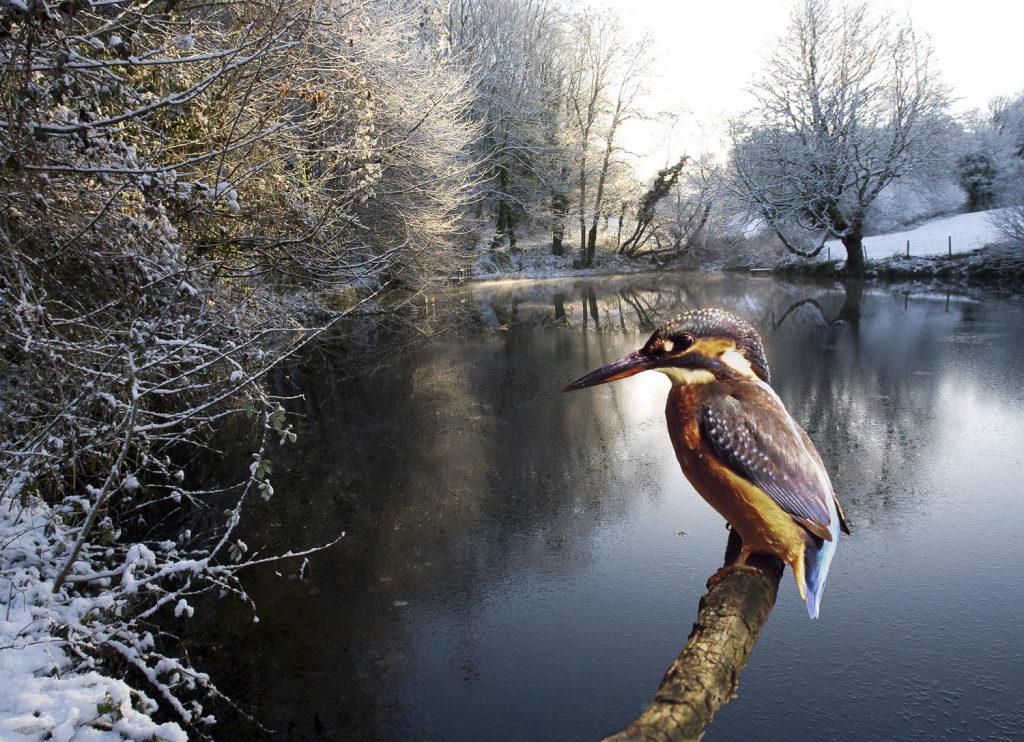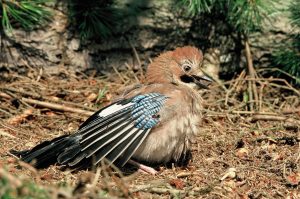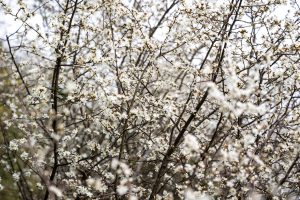A Kingfisher could make your day
Good poets have the knack of making mere words memorable. Rudyard Kipling was a master of his art, frequently paraphrased by others. "If you can keep your head when all about you are losing theirs, then you my son don't know the half of what is really going on". For me such times as this call for a distraction, something to immerse myself in and I am not talking about a work of fiction. Life can be tough in the wild, especially during the depths of winter. In the coldest, bleakest time of the year, even the best adapted can get caught out. Notably the smallest like Goldcrest, Wren or Robin. Generally, garden birds survive best where helped by those of us who regularly feed our wild guests, restocking a regular feeding station. Especially one that offers a choice of dining with menus from snack bar to five star. But when a handout is your only hope, birds tend not to be too fussy. The reality is that while we concentrate most on the main course, one of the biggest killers is a lack of liquid. When temperatures plummet, even if bird tables are regularly refilled, it is easy to forget the water. One of biggest tolls of small birdlife is not caused simply by cold but freezing temperatures turning their only source of drink into solid ice.
The simplest and safest solution is to regularly refill their bath and leave a small flexible ball floating. Others have come up with brighter ideas. Some simple, some potentially dangerous. The most ingenious range from keeping water flowing, perhaps by introducing a small stream. At the other end of the spectrum, a low voltage 12 volt aquarium heater, but don't try that one at home! Once I discovered a frozen lake with a warmer inlet of water dribbling from a small pipe. The resulting gap in the ice and snow was just enough to allow access to find fish by one of nature's most dazzling divers, the Kingfisher. Barely the size of a sparrow, these iridescent birds gave me a few exciting days filming for a BBC programme. Using a high speed camera, I captured the action in slow motion.
Watching wild birds in a predictable place is easy in your garden and seldom boring. It is amazing what might turn up. But you can also make your own luck. Think like a bird. Where is the food! Plan for the future once we get back to normal and visit a bird hide near a lake. And "if" you have never seen a Kingfisher, it could make your day.
Andrew Cooper
The simplest and safest solution is to regularly refill their bath and leave a small flexible ball floating. Others have come up with brighter ideas. Some simple, some potentially dangerous. The most ingenious range from keeping water flowing, perhaps by introducing a small stream. At the other end of the spectrum, a low voltage 12 volt aquarium heater, but don't try that one at home! Once I discovered a frozen lake with a warmer inlet of water dribbling from a small pipe. The resulting gap in the ice and snow was just enough to allow access to find fish by one of nature's most dazzling divers, the Kingfisher. Barely the size of a sparrow, these iridescent birds gave me a few exciting days filming for a BBC programme. Using a high speed camera, I captured the action in slow motion.
Watching wild birds in a predictable place is easy in your garden and seldom boring. It is amazing what might turn up. But you can also make your own luck. Think like a bird. Where is the food! Plan for the future once we get back to normal and visit a bird hide near a lake. And "if" you have never seen a Kingfisher, it could make your day.
Andrew Cooper



